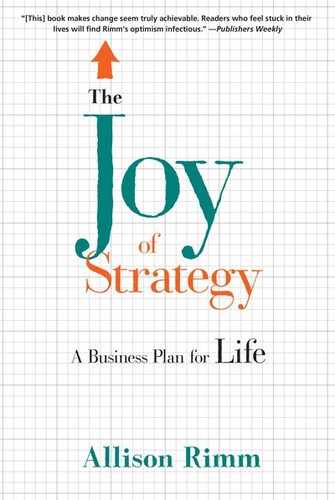Foreword
By Nancy J. Tarbell, M.D.
I first met Allison Rimm when I arrived at Massachusetts General Hospital in 1997 as the new division chief of Pediatric Radiation Oncology and the founding director of the Office for Women’s Careers. For many years, she had led hospital-wide strategic planning efforts, rallying hundreds of professionals in the bargain. Allison was also in charge of the Office of the President and served on the committee that created the new department I was hired to lead with the goal of promoting the careers of female faculty at the MGH. From the start, I relied on her expert advice, steadfast advocacy, and ability to get things done in that highly complex organization.
By the time I participated in Allison’s groundbreaking course, The Business of Life: Bringing Organization to Souls in 2008, I was already a full professor at Harvard Medical School and the founding director of the newly created Office for Faculty Development. I had found my calling and was enjoying a hugely satisfying career treating kids with cancer, leading my division, and helping to develop the careers of the next generation of doctors and scientists.
But I was lucky. I’d never thought of being a doctor until my college friend saw something in me and encouraged me to pursue a career in medicine. It was a moment in a friendship that led me to join the long and hopeful battle to cure children with cancer.
Not everyone is so fortunate to have such an insightful—and forceful—friend. All around me, family, friends, and acquaintances, seemed to be juggling so many commitments that they were utterly exhausted, yet many of them expressed that they didn’t feel like much of that activity really mattered much in the long run.
At work, several of my peers and much of the junior faculty were struggling with all manner of professional challenges while also trying to have a family and maintain some sense of sanity in the process. This was especially true for the women faculty who, despite the tentative progress we’d made in gender equality, were still primarily responsible for childcare and household administration in addition to their responsibilities at work. It was in my heart, and my job description, to help them reach their professional goals and find some semblance of work/life balance.
Allison’s course not only offered us all a strategic framework to approach managing our careers and our lives, it gave us the time, space, and guidance to consider what was truly important to us and the tips, tools, and techniques necessary to make progress on the most essential initiatives. But she didn’t stop there. She blended her skills as a strategist with soulful wisdom and gave us permission to think about what made us joyful at work and at home. Now, that was a first in the highly traditional world of academic medicine! But if you stop to really think about it, doctors—or anyone for that matter—who are happy at work and thriving in their careers will bring that sense of joy into the examining room when they see patients. They will bring it to their laboratories, administrative roles, and any other endeavors they pursue. And that positive attitude fuels their ability to be effective in their many roles.
But that doesn’t just happen. Finding fulfillment and satisfaction requires that we have the tools and know-how needed to set priorities, manage our time, and cope with our own habits that stand in the way of us achieving our goals and enjoying the process. Over the years, Allison has shared the tricks of the trade that helped her rise to her senior leadership position in one of the world’s most highly esteemed institutions with hundreds of faculty and staff at the MGH through her Business of Life courses. With her warm, candid, and compassionate approach to teaching solid self-management and project management skills, Allison created an environment where the people felt safe to express their deepest professional concerns and their career ambitions. And then they helped each other address their challenges by sharing their own stories with one another.
Perhaps the most profound shift in the classroom took place when these faculty-turned-students gave themselves the credit they deserved for achieving what they had accomplished already and cultivated some patience with themselves as they faced their next challenge. It was wonderful to witness the optimism—and relief—they experienced when they learned about the concrete steps they could take to achieve the results they desired. While I wish I had thought about some of these things earlier in my own career, I was glad to have had the opportunity to offer this experience to our faculty and be a participant.
In the The Joy of Strategy, Allison has recreated that space where her readers can learn her novel approach to thinking about their lives and careers strategically. This book is readable, entertaining, and provides practical, doable step-by-step guidance to make a business plan for your life. These principles come alive with the stories of people who have used these techniques to solve problems and make their dreams come true. All the while, Allison maintains a focus on finding some daily pleasures while working toward longer-term goals.
Anyone who cares about using their talents to do something meaningful with their lives should grab a notebook, read this book, and complete the exercises in it. Then they should create a plan and make it happen. Reading the The Joy of Strategy is a great first step.
Dr. Nancy J. Tarbell is the Dean for Academic and Clinical Affairs and the C.C. Wang Professor of Radiation Oncology at Harvard Medical School. She is a longstanding advocate for faculty development initiatives including mentoring programs for junior faculty and numerous efforts on behalf of women and minorities.
